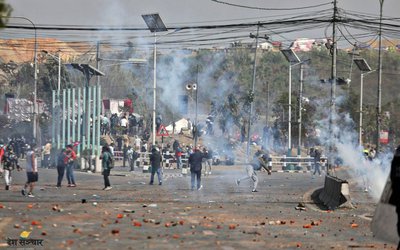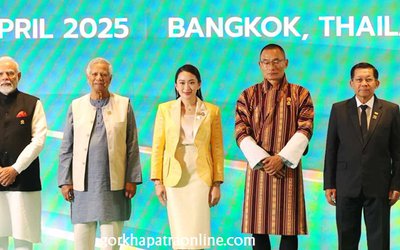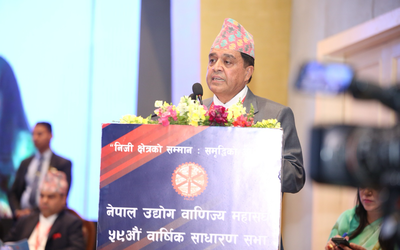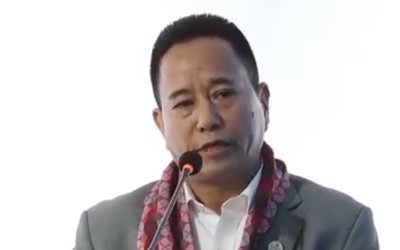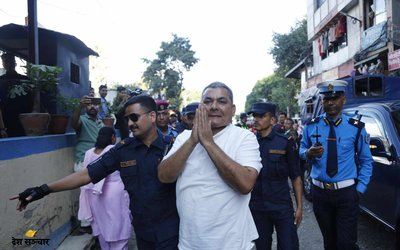
Earlier this month, senior Maoist leader Baburam Bhattarai went to New Delhi and sought the southern neighbour’s help in resolving Nepal's political stalemate over the constitution-making. Ruling out a direct interference, however, the former prime minister said India should ‘create a conducive atmosphere so that the political parties in Nepal come together and make the constitution which is agreeable to all’. But latest political developments in Kathmandu seem to suggest that what seemed as a desperate plea by the Maoist leader have fallen on deaf ears as the stalemate shows signs of further deepening instead of ending anytime soon.
After repeated attempts to resolve the contentious issues through talks failed, the 19-party opposition alliance headed by the Maoists has declared fresh rounds of anti-government protests. Calls by the ruling Nepali Congress and the CPN – UML asking the alliance to sort out differences through dialogue have met with the renewal of the opposition threat to stall the government and a nation-wide shutdown.
The fresh rounds of protests would mean that the there will be no headway soon in resolving the ongoing deadlock. This is sure to affect the constitution writing process and make it impossible to meet another deadline. There have been speculations that moves are afoot to set the Republic Day or Jeth 15 as new deadline. The confrontation will further take the government and the opposition apart with situation becoming even more difficult as the two sides move in the opposition directions.
As the political deadlock prolongs the performance of the government will take a further beating. It has already faced criticism from many quarters on many grounds. Although non-political in nature, an event earlier this month proved the lack of accountability, preparedness and the chaos surrounding the Nepali government’s system. The Turkish Airlines fiasco showed that the government is not accountable despite the airport being closed down for a number of days affecting thousands of passengers. Neither was there any compensation, timely updates or any efforts from the government to ensure normality in the country’s only International airport.
As prospects of conciliation look even bleaker now, the government will face hurdles in discharging its day-to-day normal business. This will only add to the mounting frustrations of the general people who have been betrayed by the political parties especially over the delivery of the much-promised Law of the Land under a democratic republican set up.
At a time when the spirit of reconciliation is needed the most to clear way for stability through a new constitution the major parties are on the road of confrontation. Until and unless the parties make sincere efforts, and achieve success in narrowing their differences to broaden larger national interests, Nepal will face a bleak political future.
- BIMSTEC SUMMIT: Nepal’s Stand
- Apr 11, 2025
- IME GROUP: Expands Into Paper Industry
- Mar 24, 2025
- CPN UML: Instigated By India
- Mar 23, 2025
- ADB’S CHIEF ECONOMIST: Nepal Reduces Poverty
- Mar 11, 2025
- FM DR. DEUBA: A Successful Visit
- Mar 11, 2025






